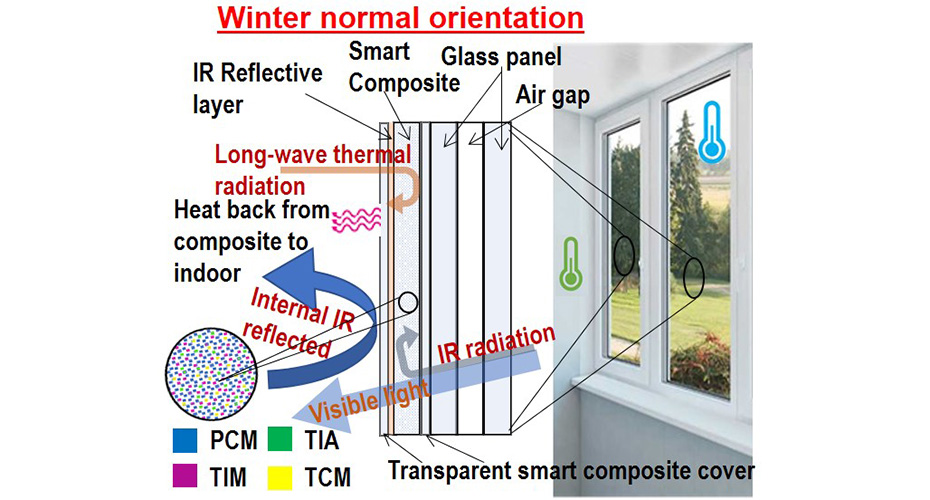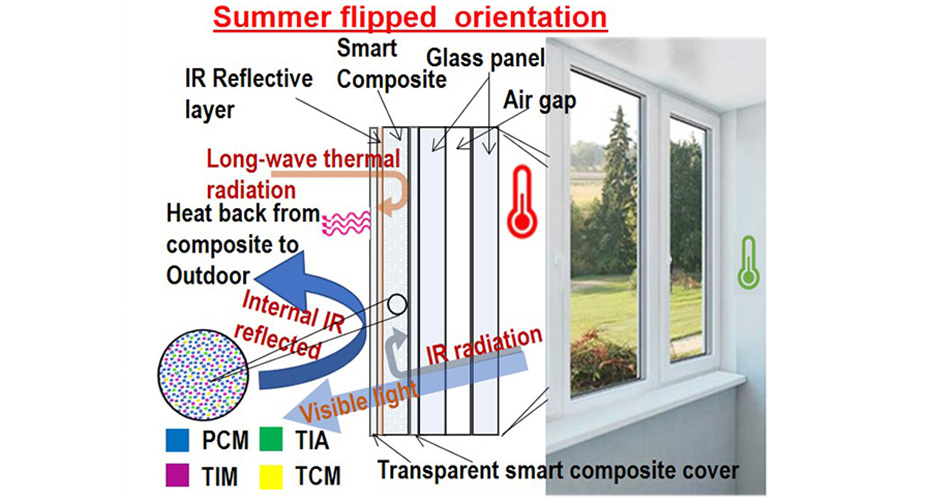Smart Composite Material for Advanced Building Fenestration to Enhance Energy Efficiency
Research overview:
Energy consumed by buildings for heating, cooling, and lighting needs accounts for more than 40% CO2 emissions and government’s ambitious target of reaching zero emission by 2050 cannot be achieve without controlling ingress and egress of energy through buildings.The mounting demand for better energy efficiency and visual comfort of buildings has led to the development of innovative, high performance smart glazing systems using smart composite material. The vision of project is to undertake an ambitious innovative research program developing new technology to significantly reduce energy demand in the built environment at an acceptable cost. The goal will be achieved by reducing heat loss, controlling incoming solar radiation to maximise solar gain, minimise heat loss in winter and reverse it by flipping windows in summer while ensuring the best natural lighting conditions with no glare. This research program will develop advanced glazing technology with the aim to have U-values down to 0.4 W/m2K1 while maintaining comfortable daylight environments and to reduce annual energy consumption by 30-40% for buildings. This will be achieved by developing a multi-fold smart composite based on optimised matrix of phase change materials (PCM) to enhance thermal capacitance, transparent insulating materials (TIM) to increase thermal resistance, transparent infrared absorber (TIA) to absorb IR radiation and thermochromic materials (TCM) to control light transmission and along with infrared reflective coating to reduce heat loss and gain through transparent envelope of built environment. The outcome of this research will enable us to create technological pathways towards achieving energy positive buildings in the UK.
Key objectives:
This is a timely project that directly targets the UKs need to reduce building end use energy demand and heat decarbonisation through developing smart composite material for advanced facades to control the energy flow (heat gain, loss, and daylight). The main goal of this ambitious project is to develop technology based on state of art techniques to enable end-users to reduced energy consumption while balancing visual comfort with hygrometric wellbeing. The overarching aim is to implement combined theoretical modelling and an experimental approach to develop and testnew window and façade technology based on smart composite material to achieve building energy reduction goals.
Impact:
Development of advanced glazing technology has the potential to reduce annual energy consumption by 30-40% for buildings.
The outcome of this research will enable us to create technological pathways towards achieving energy positive buildings in the UK.

Building Energy efficiency should be on the priority list to reduce energy consumption to save money and our planet. Smart glazed fenestration is a way forward to achieve energy efficient buildings.
Dr Asif Tahir
To be updated soon.
To be updated soon.
Dr Asif Tahir (University of Exeter)
Professor Tadj Oreszczyn (UCL)
Professor Tapas Mallick (University of Exeter)
Dr Senthil Sundaram (University of Exeter)
Dr Anurag Roy (University of Exeter)
Dr Habib Ullah (University of Exeter)
Professor Yanqiu Zhu (University of Exeter)
Dr Aritra Ghosh (University of Exeter)
Professor Mohammad Abusara (University of Exeter)


